
Written by
Germeen Tanas
Germeen is an aPHR-certified writer on the marketing team at BerniePortal. She writes about HR, healthcare, and benefits.
Key Takeaways from Weekdays with Bernie 2024
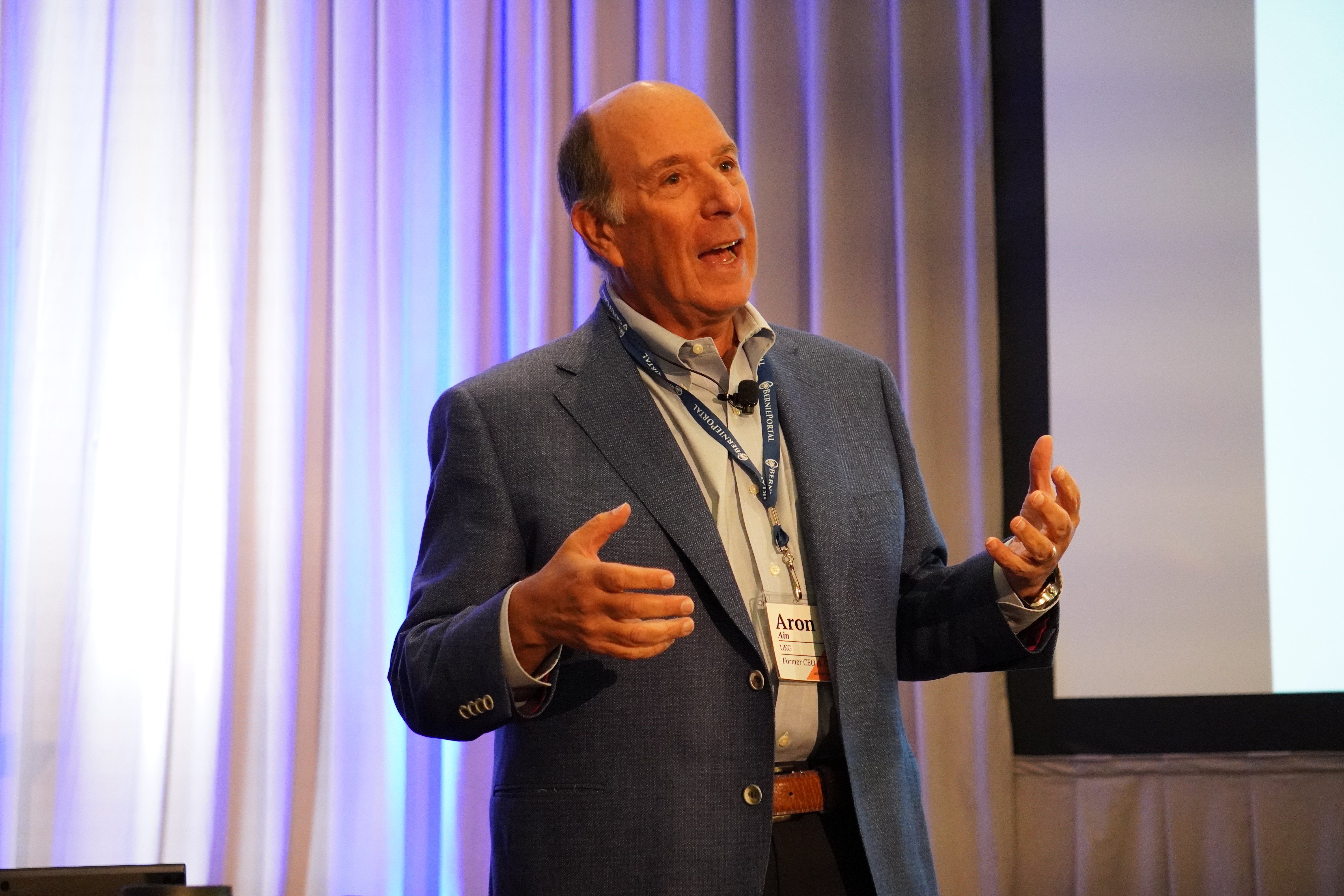
We just wrapped up another phenomenal Weekdays with Bernie (WWB) Conference!
This year marked BerniePortal’s 7th annual conference, where BerniePortal users, HR industry professionals, and broker partners come together for a three-day conference in the heart of Music City. Weekdays with Bernie was inspired by our mission to serve our clients by providing industry-leading resources to help them grow their businesses and strategize their HR roles.
The speaker lineup featured influential leaders and experts who covered a multitude of relevant topics that impact the workplace today. Attendees left the conference with new connections, SHRM and HRCI continuing education credits, and, most importantly, tangible action steps they can start implementing today.
Missed out? Don’t worry, there’s always next year!
Keep reading for a recap of Weekdays with Bernie 2024!
Weekdays with Bernie 2024 General Session Speakers
This year, BerniePortal curated a speaker selection featuring the likes of:
- Aron Ain— Executive chair of the UKG Board of Directors and Operating Partner at Hellman & Friedman; Author of Work Inspired: How to Build an Organization Where Everyone Loves to Work.
- Gloria Goins— Chief diversity, equity, and inclusion officer for Cisco systems, former Head of Equity and Business Development for Amazon pharmacy, named top 5 Amazon healthcare executives to know by Becker’s Hospital Review.
- Madeline Mann— Award-winning social media influencer, creator of Self Made Millennial; HR & recruiting leader.
- Dr. Jessica Rhodes— Pharmacist and Senior Director of Employer Engagement at Eli Lilly.
Aron Ain—The Future of the Workplace
Ain’s company, UKG, made history in 2021 by becoming the first newly merged entity to land on the Fortune 100 Best Companies to Work For® list, debuting at #6.
From the ground floor to the corner office, Aron knows his workforce, which enabled him to take two companies filled with different moving parts and create a workplace where people are keen to join and stay. Ain is an expert in using employee engagement as a business strategy.
Ain recognizes the value that each employee brings to an organization and believes in harnessing the power of the people who work for him. Ultimately, trust is what enables employers to use employee engagement to drive business goals.
He shared his inspiring story of growing up as one of five kids and learning that the hardest job one can have is a working mom. His childhood experiences evidently impact the way he views the workplace today and empower him to empathize with employee struggles to balance the demands of work and life. When employers trust their employees to get things done, they are more likely to offer flexibility and policies that encourage better work-life balance, like unlimited PTO.
He encourages employers and HR leaders to start with trust, acknowledging that they probably wouldn’t have hired an employee in the first place if they didn’t trust them to get the job done. People don’t have to earn Ain’s trust, they have to unearn it. WWB attendees carried this line with them and repeated it as a motto throughout the conference.
Ain also highlighted many important strategies employees can use to harness the power of employee trust. These included the following:
-
Remembering people, names, and conversations: Ain recalled a time when he remembered that one of his employees’ daughters had a dance recital, and the impact that asking how it went had on that employee.
-
Be intentional about building workplace relationships: Aron once spent four consecutive hours of his day stopping by each employee’s desk to learn about who they are, which went a long way.
-
Over-communicate with employees: Ain encourages being transparent and keeping employees directly informed about what’s going on in the business. He does so by creating vlogs that he regularly shares with his employees.
-
Instill a belief that anything is possible: great organizations are powered by great people. A team that believes anything is possible is what makes a great place to work.
Ain touched on the great influence managers have on employees and encouraged HR professionals to take on the role of teaching managers and holding them accountable for workplace culture.
To learn more about Aron Ain’s expert philosophy on workplace culture, I highly recommend reading his book, Work Inspired: How to Build an Organization Where Everyone Loves to Work.
Gloria Goins—DEI, Unconscious Bias, and Healthcare Giants
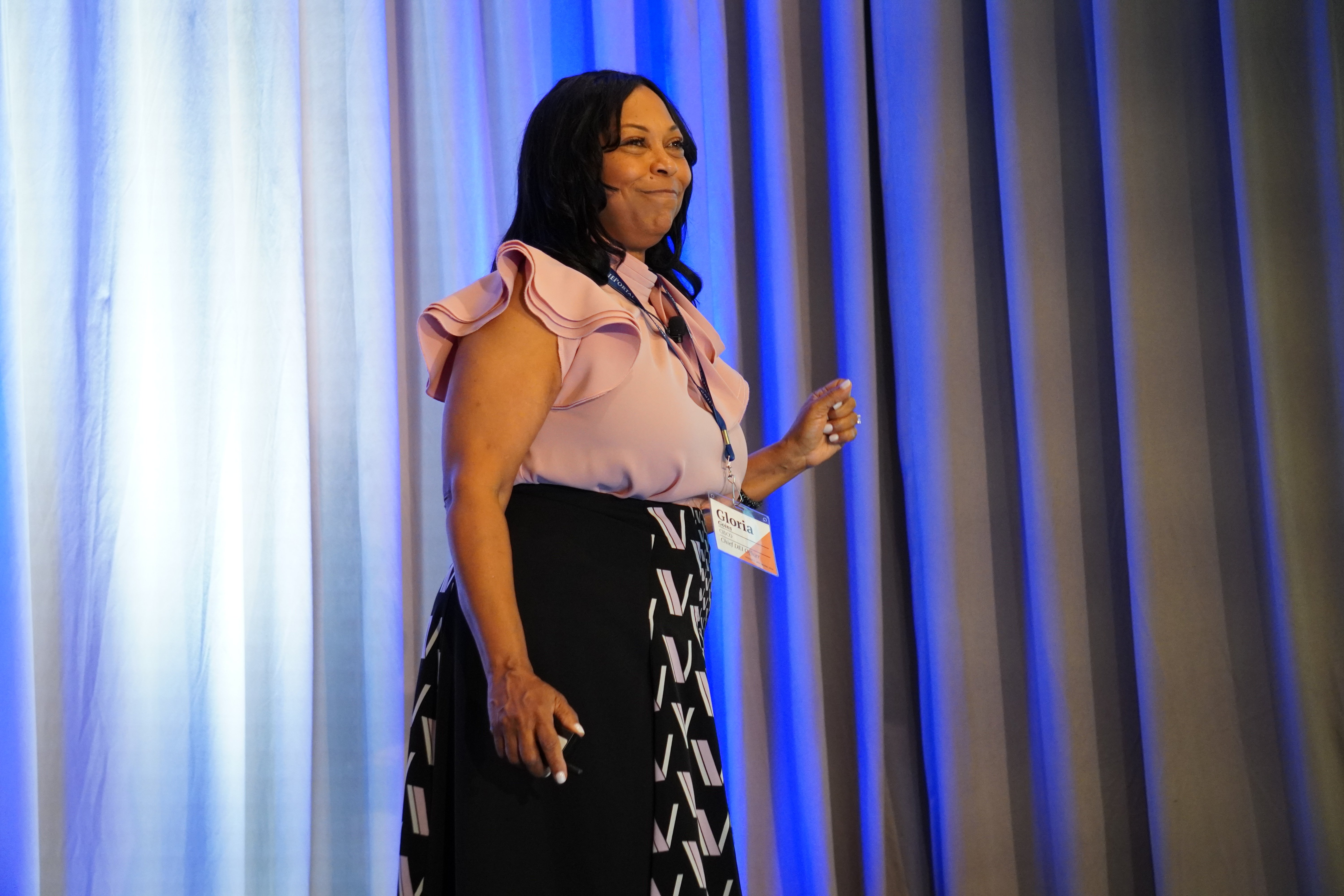
Gloria Goins unpacked the concept of unconscious bias in the workplace and described it as normal, natural, and universal. Unconscious biases are difficult to detect because they occur without our knowledge or control, but they are not inevitable or imperative. The human brain is actually malleable and can be rewired.
Goins presented evidence-based research that shows that it only takes about 100 milliseconds to see somebody, notice their race, ethnicity, and gender and make a decision about whether that person is trustworthy or not and if they’re a threat to you. Keep in mind that a millisecond is only 1/1000th of a second. That means unconscious bias occurs quicker than the blink of an eye!
We all have blind spots in the ways we view others. What matters is our awareness of those blind spots and then, what we do with that awareness. Surprising examples of unconscious bias in the workplace include:
-
How you take your coffee: hot drink temperature determines favorable rating in an interview.
-
How you carry weight: overweight job candidates statistically receive less favorable ratings.
-
How your accent sounds: people with accents are viewed as less factual (unless the accent is British).
According to Goins, unconscious bias impacts quality of service across businesses, and especially in healthcare. People don't want to be treated exactly the same in healthcare; they want to be treated according to their specific needs.
Goins also redefined DEI for the audience. Every employee comes to your organization with a unique set of skills, journeys, talents, voices, and lived experiences that they have to understand, value and optimize to drive profit.
- Diversity: drives better results, makes organizations really intelligent, productive, and innovative.
- Equity: removes the barriers that get in the way of all people being their best. Evidence shows that companies with equitable representation of talent are more profitable.
- Inclusion: creates a culture where people feel they belong and want to work.
She encourages HR leaders in business and healthcare to systemize DEI efforts by doing the following:
- Making DEI a regular topic of discussion in employee meetings
- Coaching managers to identify and correct unconscious bias
- Having systems in place for treating patients according to their needs
- Having systems and processes to check the bias for you: For example, require healthcare professionals to ask: “Is there anything from a cultural or personal standpoint that we need to understand in order to give you excellent care today?”
Goins also shared touching stories of her personal experiences with unconscious bias as a patient, which made her key points even more tangible for the audience.
“You are not responsible for your first thought. You are only responsible for your second thought, and your first action.” – Gloria Goins
Dr. Jessica Rhodes— Employer Considerations for Patients with Obesity
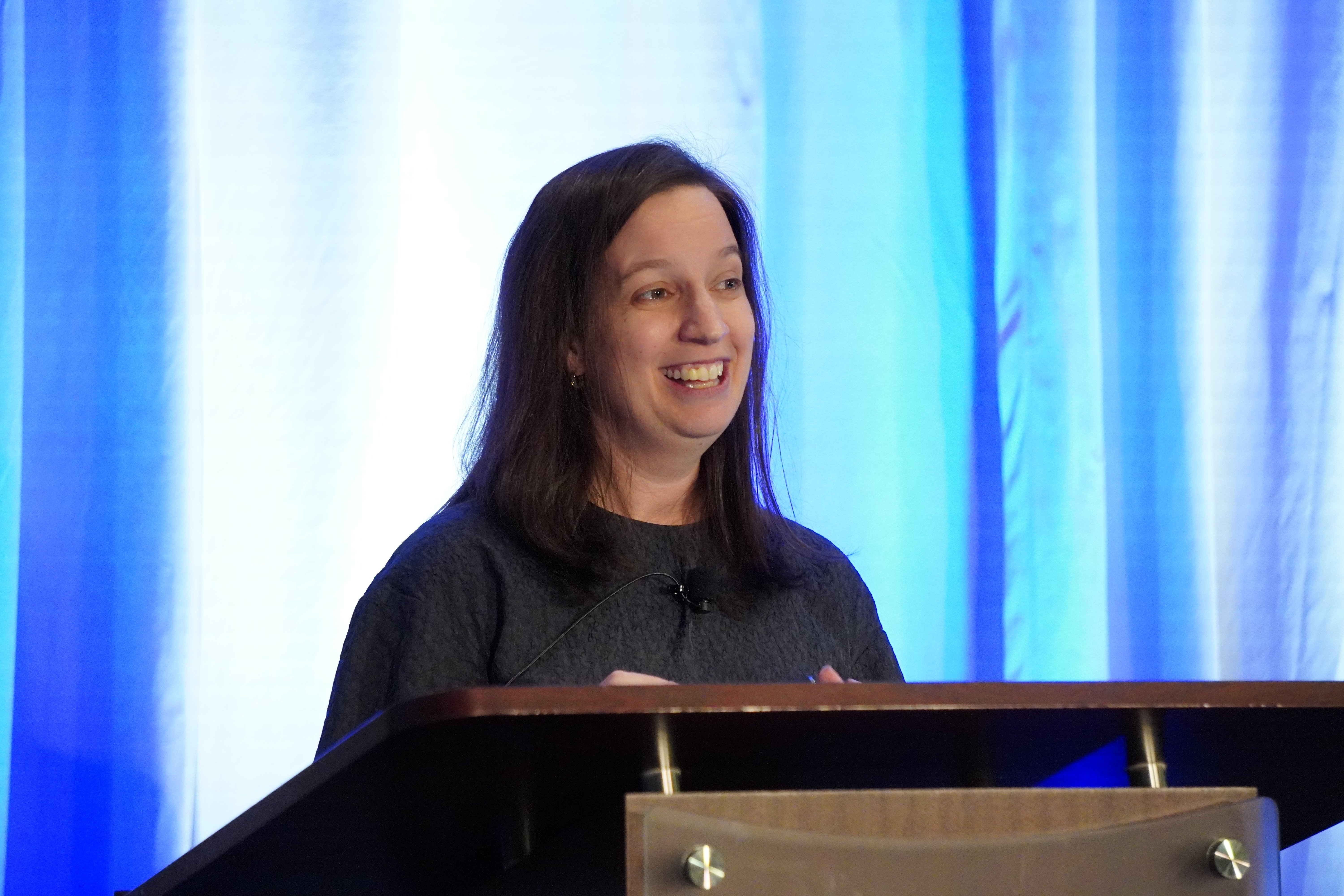
Dr. Jessica Rhodes from Eli Lilly, a company internationally recognized for its commitment to pharmaceutical excellence, gave an insightful keynote presentation on employer considerations for patients with obesity.
She presented research conducted through two clinical trials on Zepbound, a newly FDA-approved weight-loss drug. Research shows that Zepbound works to reduce patient weight by a statistically significant percentage.
Dr. Rhodes asked the audience the following questions:
- Is your organization treating obesity like the chronic disease that it is?
- Are workplace well-being programs doing enough to help employees living with obesity?
- How is obesity driving higher healthcare costs?
A real-world analysis showed that obesity was associated with the following:
- higher healthcare costs
- higher loss of work productivity
- increased odds of disability events
- increased odds of workers’ compensation claims
- more absence hours
Acknowledging that anti-obesity medications act as a complement to– not a substitute for– existing well-being programs, Dr. Rhodes encouraged brokers to consider adding anti-obesity medications to their benefits packages.
Her session sparked important questions and conversations about the cost-benefit analysis of having employers pay for weight-loss drugs and the financial risks associated with covering the drug.
Madeline Mann— “Why are Employees Asking Me That?”—How Viral Trends Have Transformed Workplace Discourse
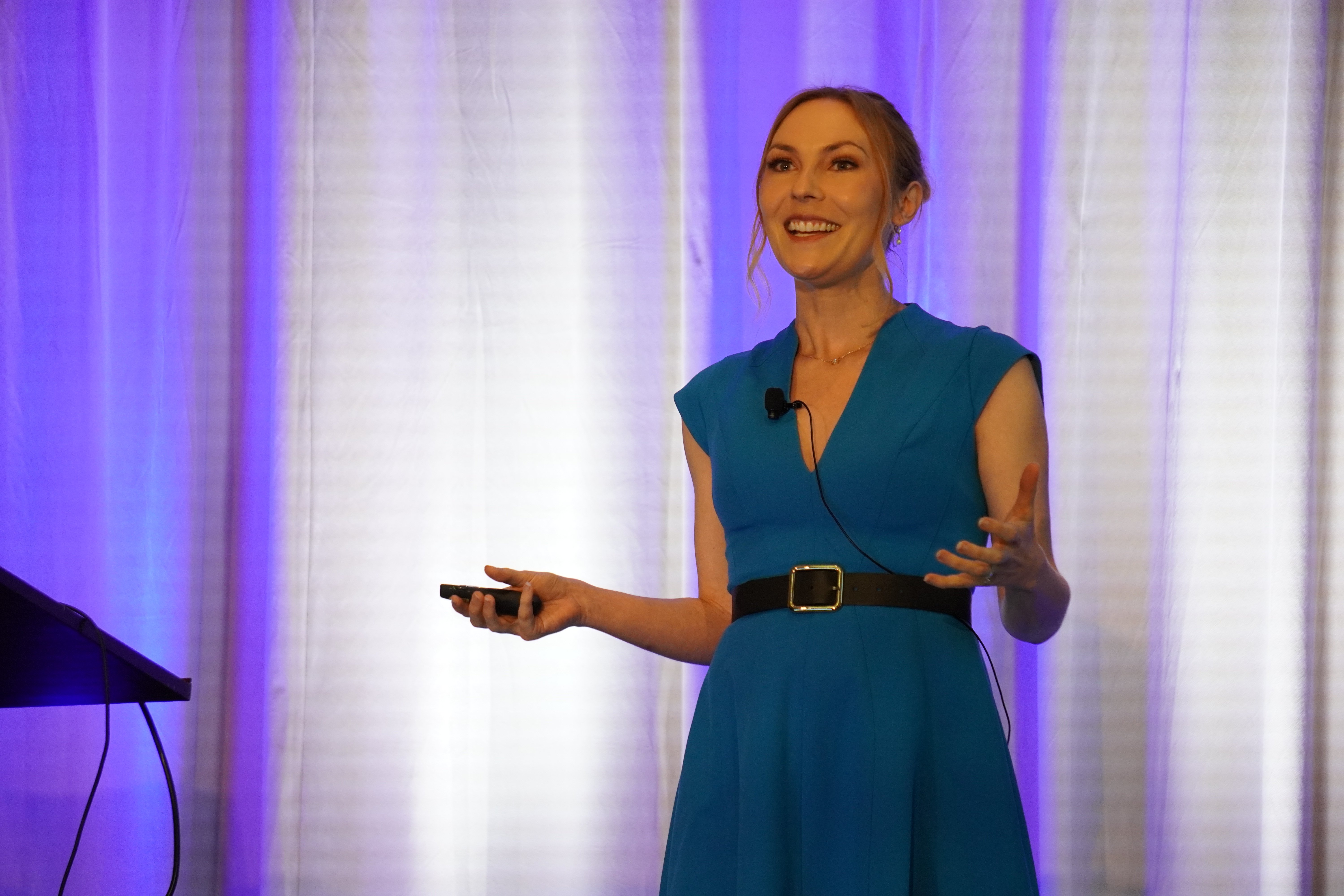
Gen Z and Millennials are projected to dominate over 75% of the workforce within the next few years. As a successful job search coach and social media influencer, Madeline Mann has garnered an audience of millions on her channel, Self Made Millennial, many of whom are the eponymous Millennials or the younger Gen Zers. In her session, Mann shed light on the effects that digitization and social media have had on the workplace, and how viral trends transform workplace discourse.
Because the workplace naturally responds to societal and contemporary movements, HR pros today are facing challenges their predecessors have never seen. Mann started her session by covering some influential cultural moments of recent years and how they’ve dramatically altered the fabric of the workplace. These included:
-
The Great Recession
-
Digitization & Remote Work
-
The #MeToo Movement
-
The COVID-19 pandemic
-
The social justice and Black Lives Matter movements
-
The rise of the personal brand
According to Mann, today, a company is expected to be:
- A paycheck
- A career coach
- A life’s purpose
- A therapist
She presented a few very controversial videos posted on TikTok by GenZers. One video was of a young woman getting laid off by her organization’s HR, who had no working relationship with her. The woman was visibly upset because she didn’t have a relationship with her manager and felt that her manager should’ve been the one to deliver the news. She also believed she was being laid off because the organization hired too many people and then realized they didn't need them or want to pay them, not because of her performance.
Another video showed a young man who was very irate that his manager scheduled an 8 am meeting only a day in advance and then expected him to be there even though he had plans to attend a workout class that morning.
The TikTok videos led to engaging discussions between brokers and HR professionals on boundaries, clear communication, job descriptions, etc. Mann also discussed the effect these videos had on the companies connected to them. The companies received immense online backlash for the way they handled both situations. Mann encouraged WWB attendees to think more critically about the needs and challenges of their workforce and how their company’s response can greatly impact their organization’s online reputation and future.
Mann then introduced the concept of design thinking, a non-linear process that HR can use to tackle problems in the workplace. Design thinking consists of 5 steps:
-
Empathize: understand the issues of your workforce and their points of view
-
Define: clearly articulate the issue and where it’s coming from
-
Ideate: brainstorm a few creative solutions or compromises to the problem
-
Prototype: build a representation of your ideas and show them to others
-
Test: put your ideas to the test and retrieve user feedback
Too often, she highlighted, we jump to ideating when we encounter problems, and skip empathizing.
Mann asked the audience, “How would these Gen Z experiences be different if the employers had started at Step 1 rather than jumping to Step 3?” More likely than not, the ideating would have looked very different. In the case of the first TikTok, the young woman’s HR team would have recognized the importance of the organization’s last impression.
The last impression an organization leaves on an employee is arguably even more important than the first impression. People typically don’t leave a Glassdoor review of an organization if they left on a good note. With 70% of people looking at Glassdoor before accepting a job offer, it’s crucial that employers mitigate the risk of an employee leaving a negative review. To do so, Mann suggests, layoffs and terminations should be systemized in the same way that onboarding is often systemized. Employees should receive enough performance feedback that they are not completely shocked when a termination occurs.
“Focus on the ending, like you do the beginning.” – Madeline Mann
Congratulations to our Weekdays with Bernie 2024 Award Winners
1. Most Spirited Attendee: This award goes to the most engaged attendee at Weekdays with Bernie.
Benefits Account Manager at Shepherd Insurance— Theresa Green
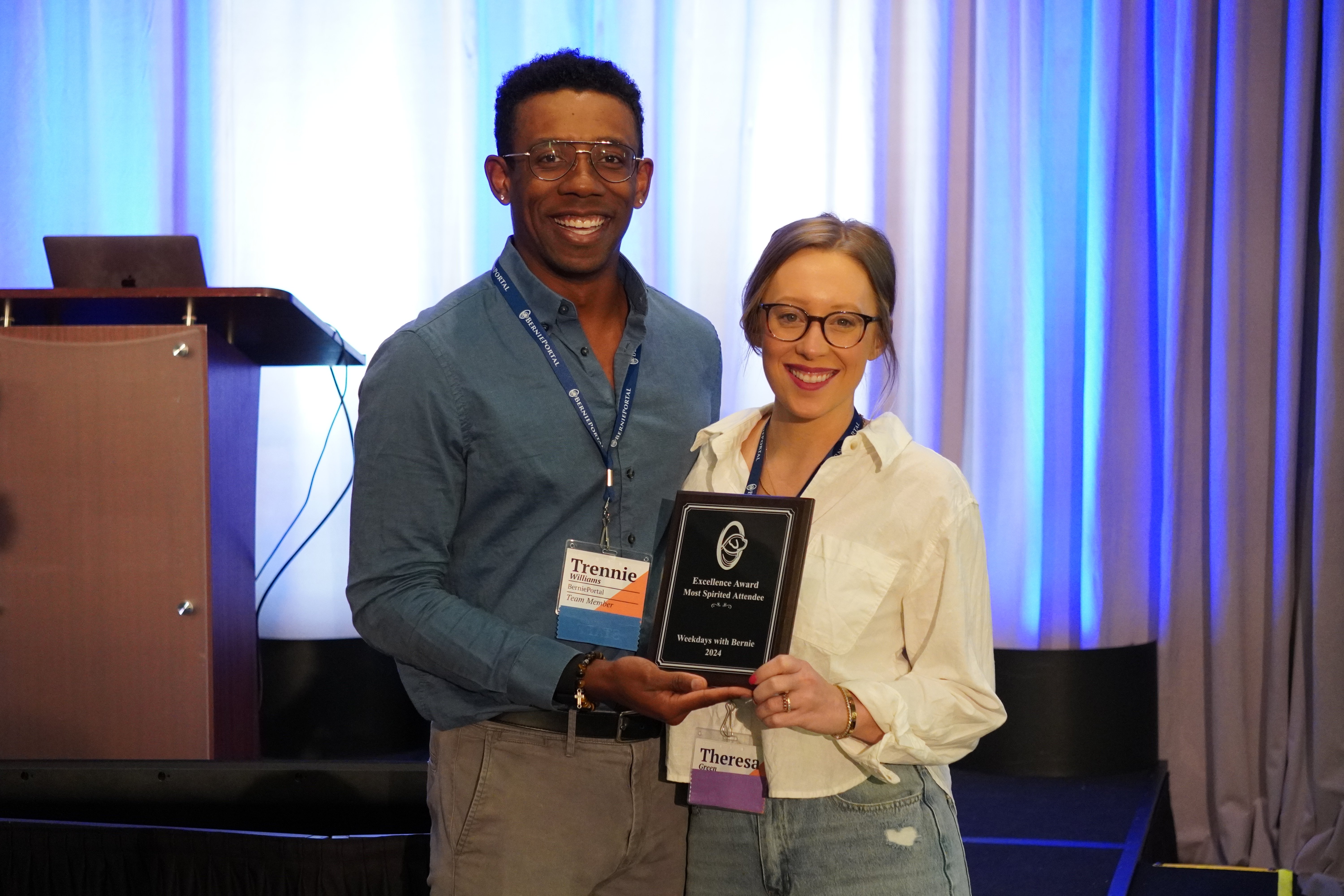
2. BerniePortal BFF: This award goes to the agency that was most engaged with BerniePortal in 2023.
Bertrand Financial Services—Brock Bertrand and Jackie Hils
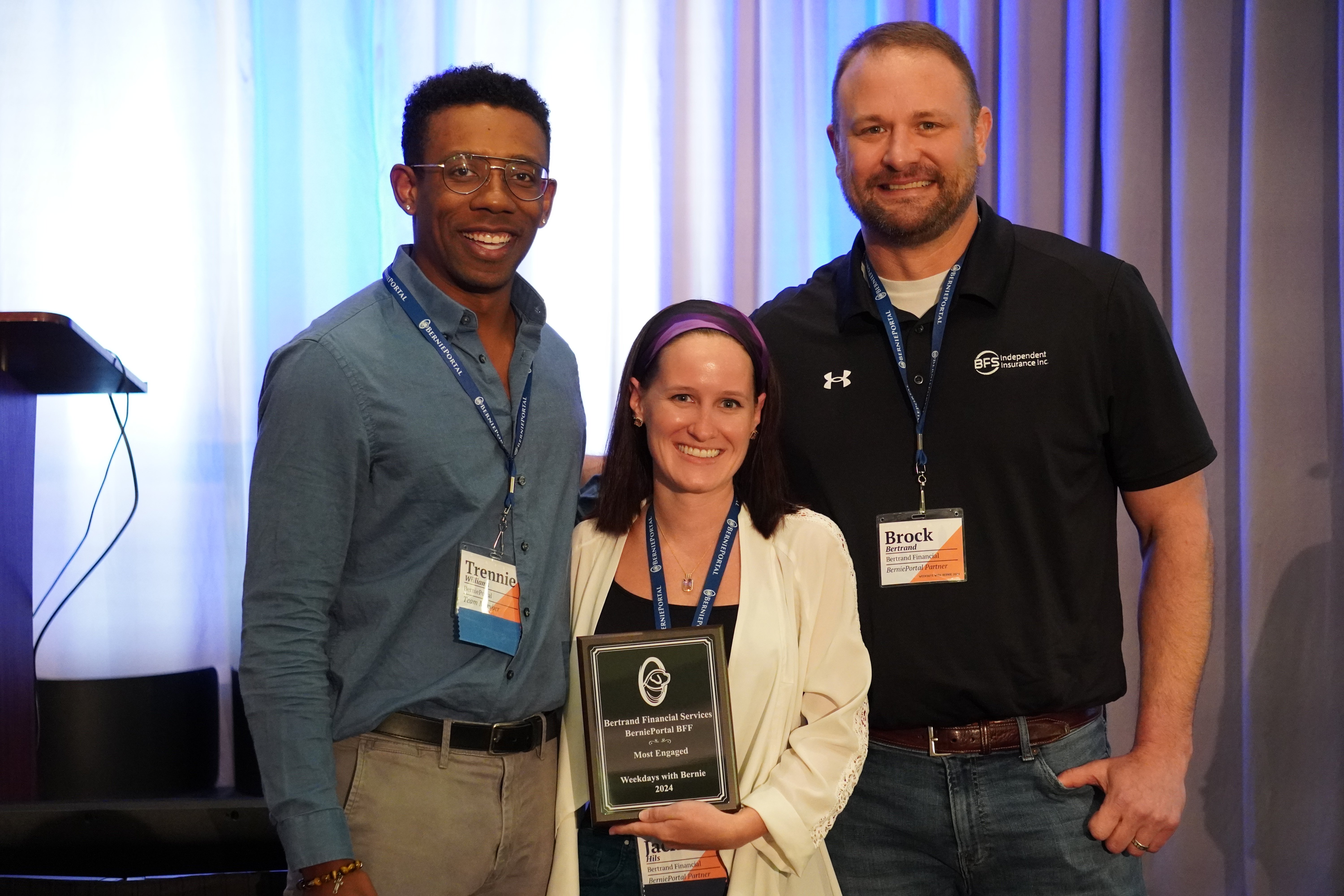
3. BerniePortal Boss: This award goes to the company with the most employees added to BerniePortal in 2023.
Fredriksen Health Insurance—Eric Fredriksen
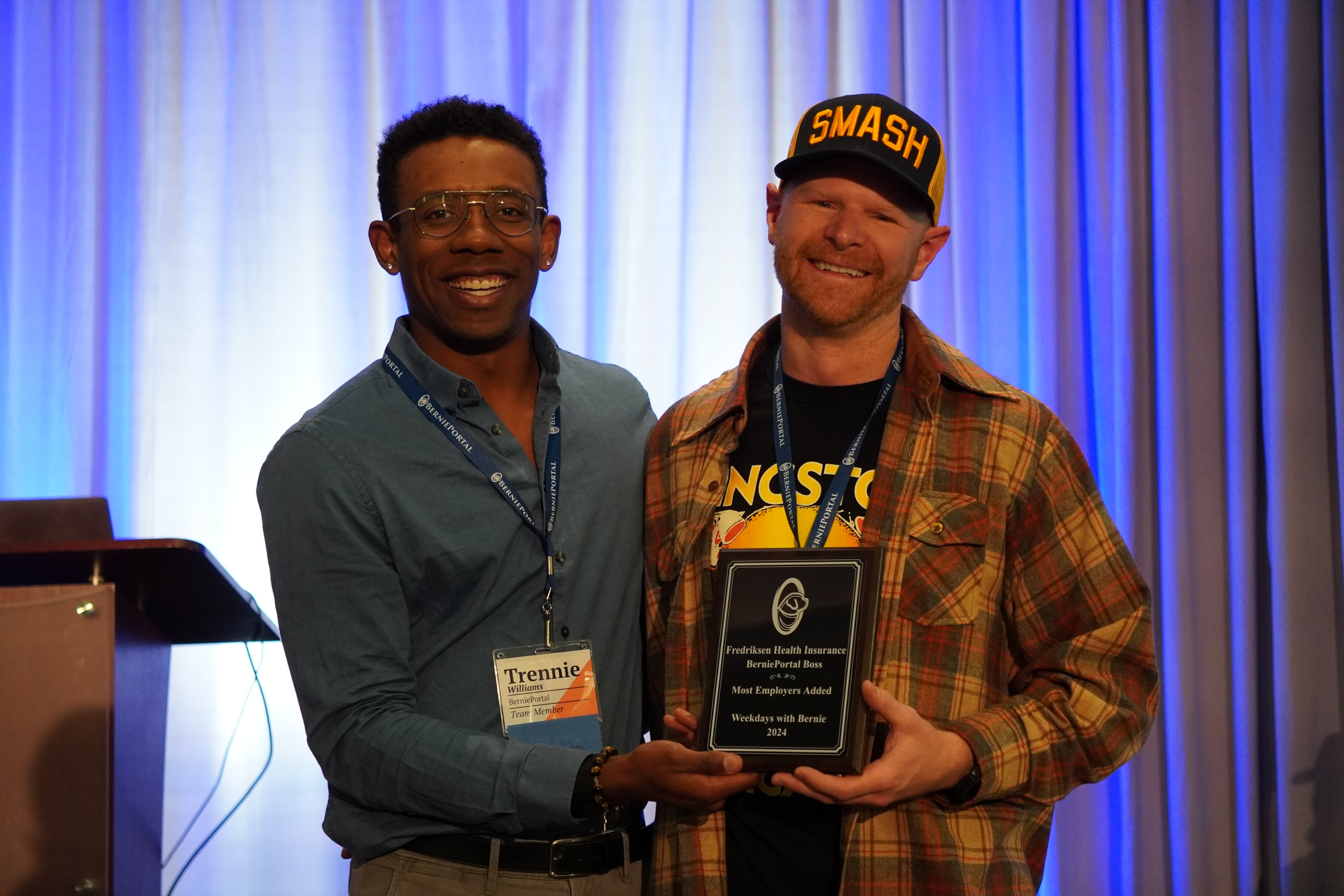
BerniePortal Employer Council 2024
For the first time this year, we recognized the members of our inaugural BerniePortal Employer Council. Over the past year, they have provided us with insight on HR needs and pain points.
This year’s employer council included:
-
Diana Elliott—CCMA, LLC, based in New York
-
Lauren Burgess—Navarre Corp, based in Tennessee
-
Patti Bradley—Coast Pavement Services, based in Oregon
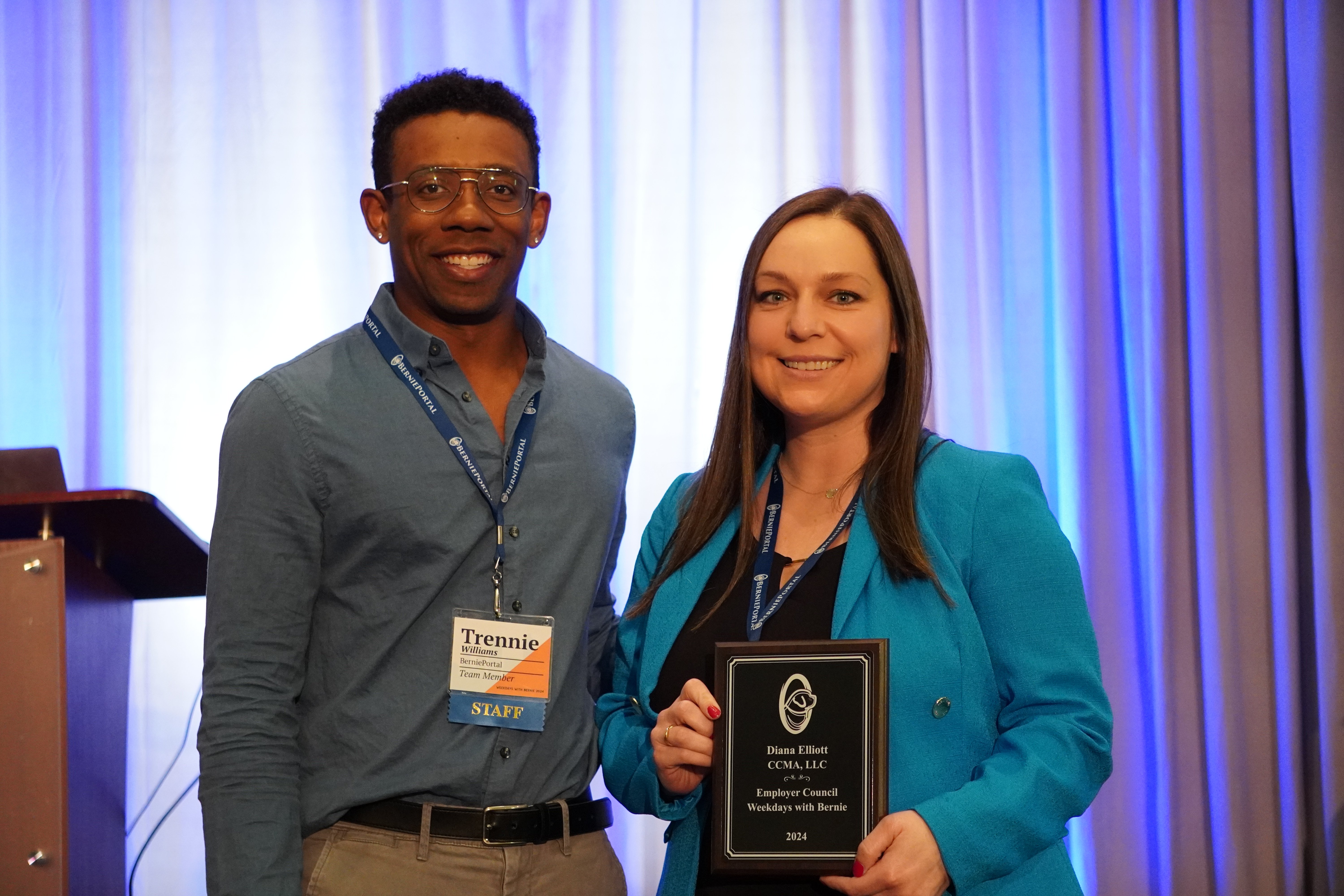
BerniePortal Broker Council 2024
Each year, we also recognize the members of our BerniePortal Broker Council, composed of some of the best broker minds in the business.
-
Dana Kiblawi and Chris McArdle of MKE Benefits, based in Wisconsin
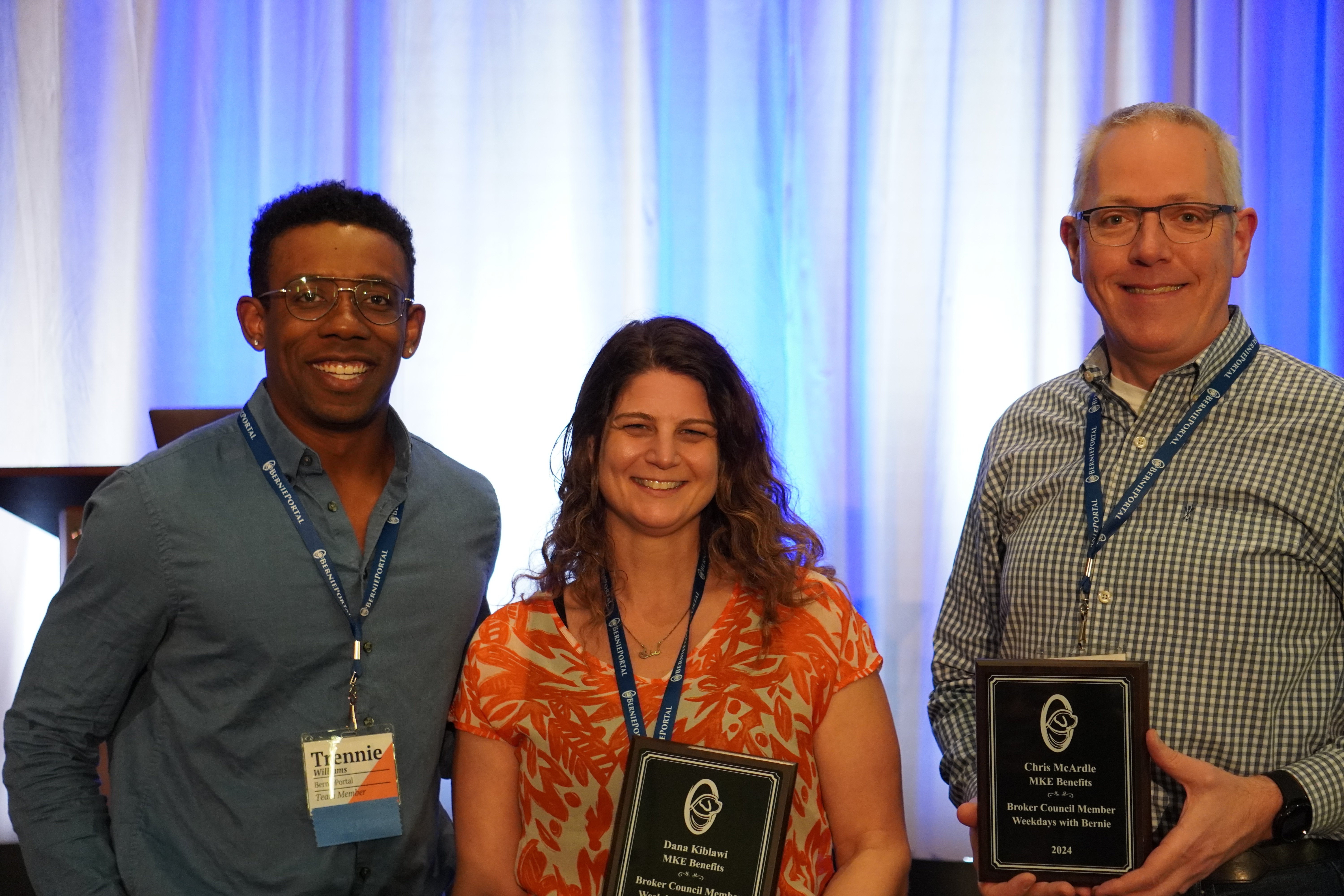
2. Jennifer Sosa of Higginbotham, based in Texas
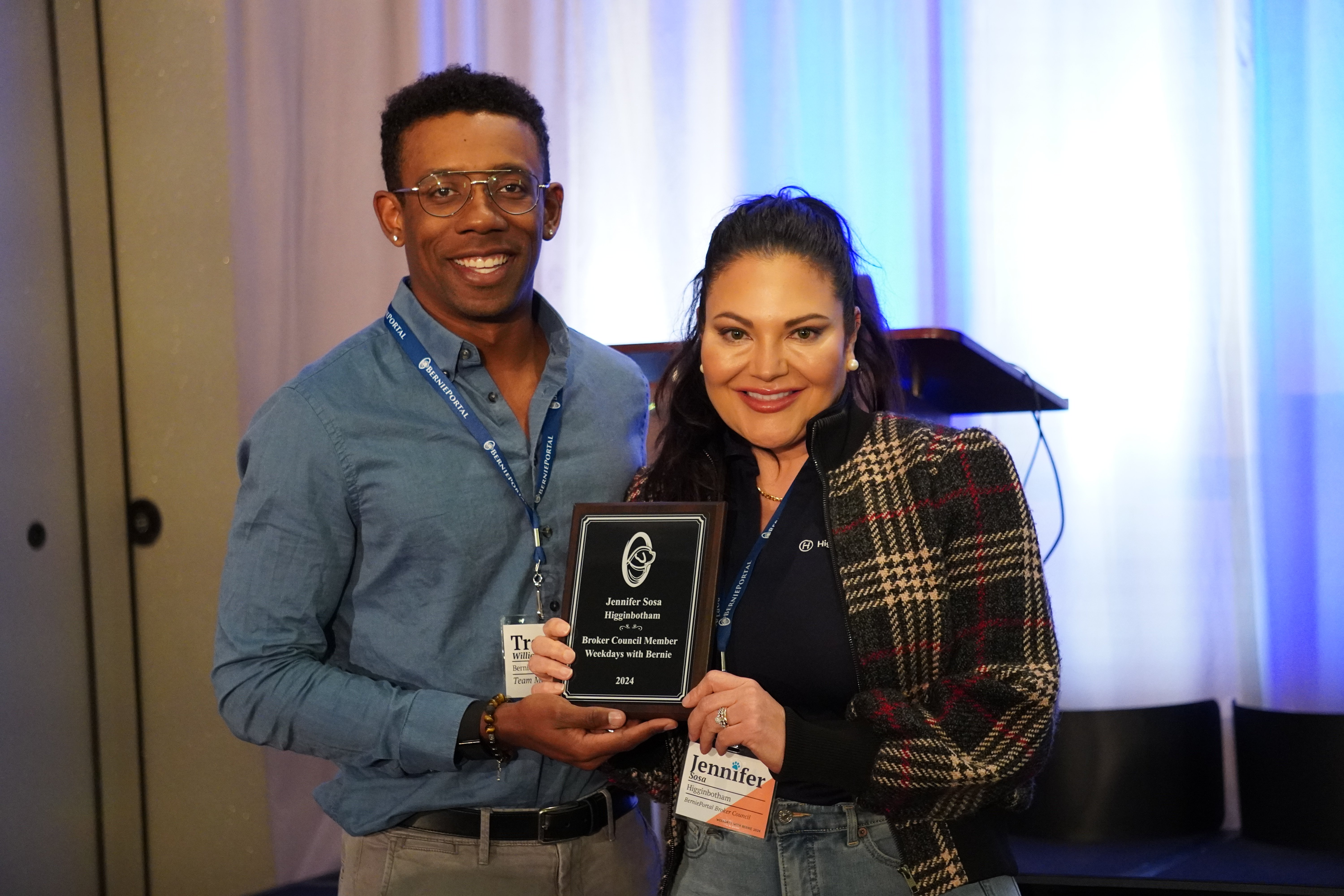
3. Jennifer Coppola and Diana Epstein of LD&B Insurance, based in Virginia
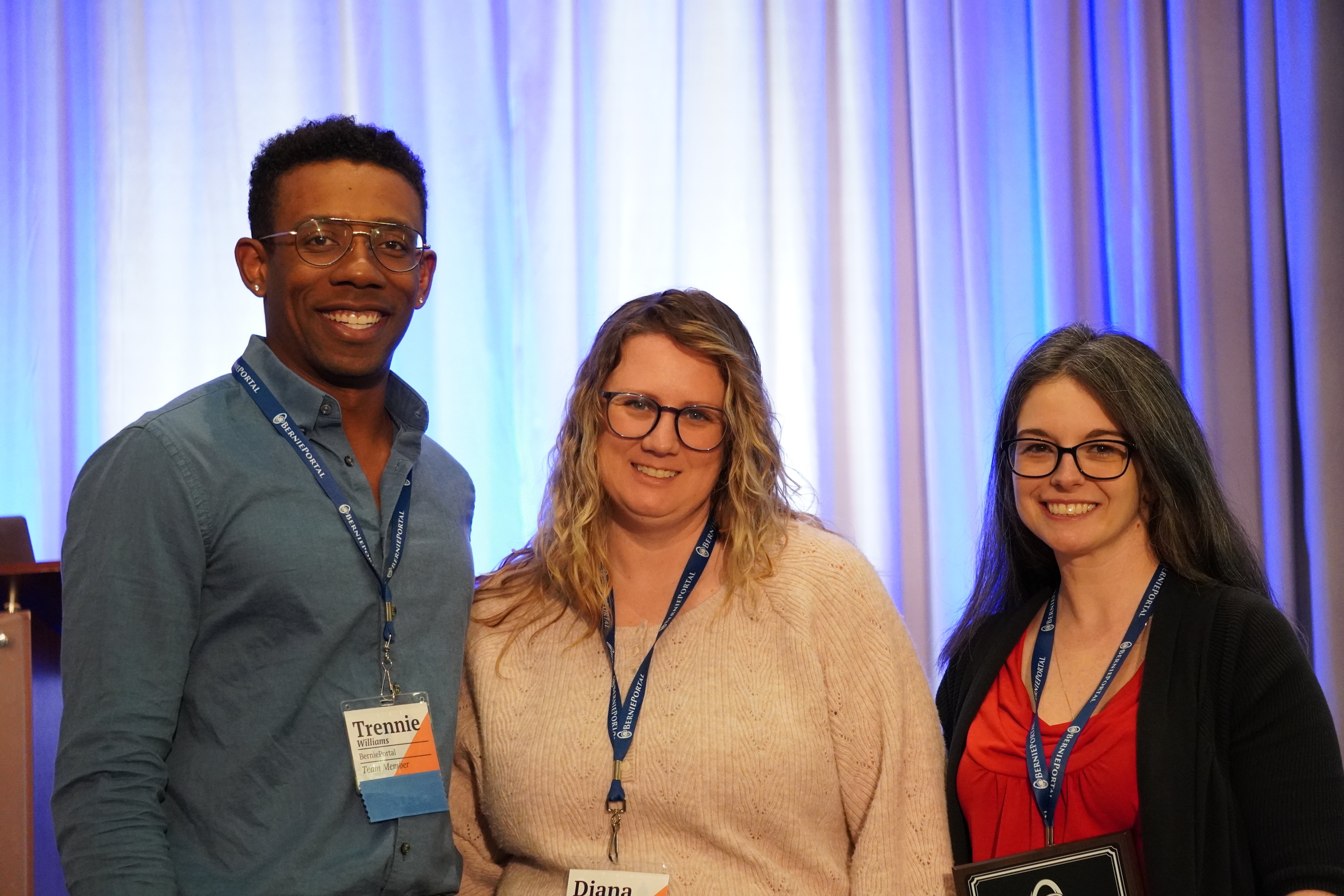
4. Jill Pedersen and Jolene Bryant of Columbia Benefit Solutions, based in Oregon
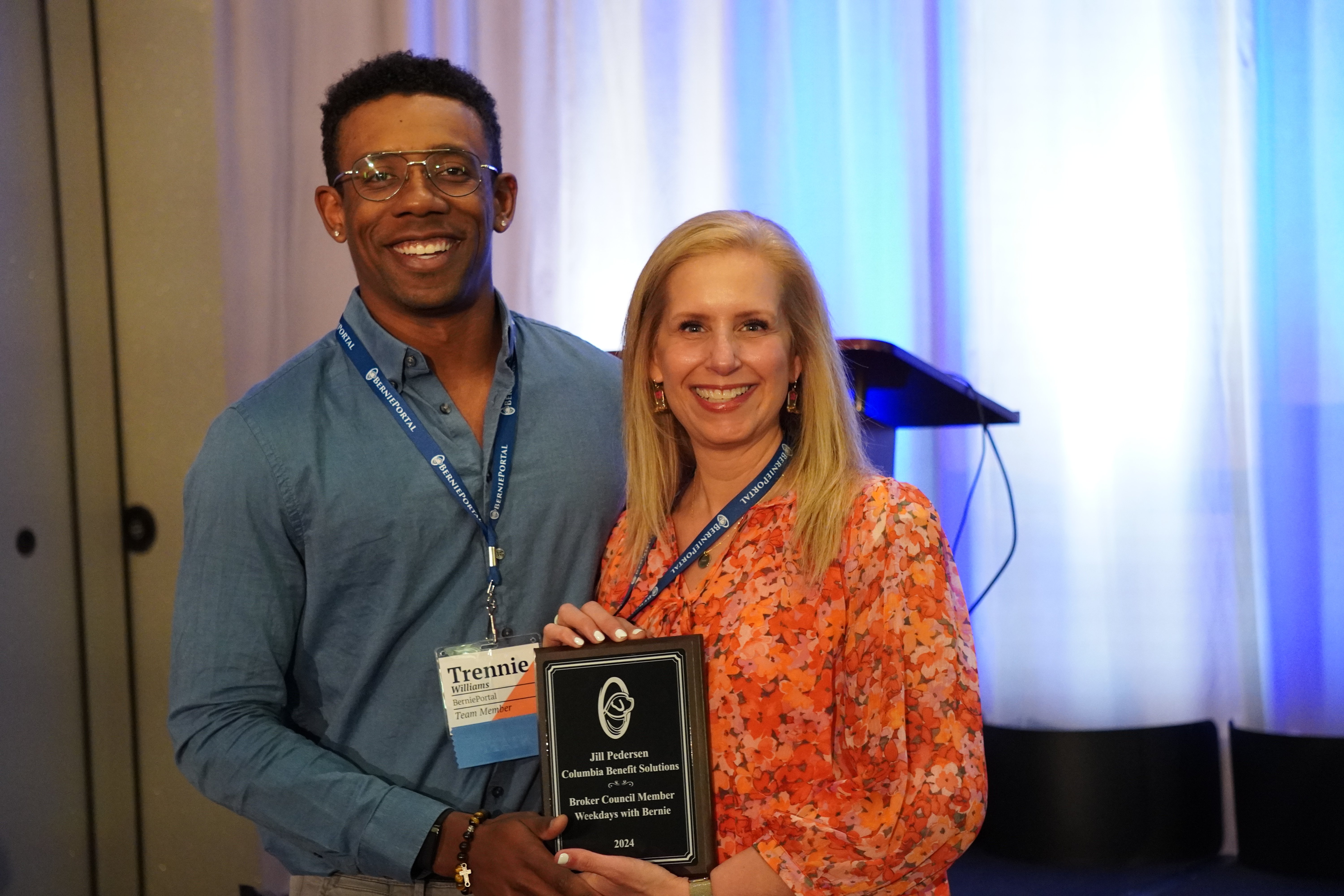
Key Takeaways from Other Weekdays with Bernie Conferences:
Additional Resources
You can stay informed, educated, and up to date with important HR topics using BerniePortal’s comprehensive resources:
- BernieU—free online HR courses, approved for SHRM and HRCI recertification credit
- BerniePortal Blog—a one-stop shop for HR industry news
- HR Glossary—featuring the most common HR terms, acronyms, and compliance
- Resource Library—essential guides covering a comprehensive list of HR topics
- HR Party of One—our popular YouTube series and podcast, covering emerging HR trends and enduring HR topics
- Community—the HR Party of One Community forum, a place devoted to HR professionals to ask questions, learn more, and help others

Written by
Germeen Tanas
Germeen is an aPHR-certified writer on the marketing team at BerniePortal. She writes about HR, healthcare, and benefits.
Related Posts
Part-time work is becoming increasingly common in today’s workforce—especially for...
As you know, healthcare and benefits can be complicated, which can make the enrollment...
With the deadline for filing and distributing 1095-C forms approaching, staying...
A strong paid time off (PTO) policy helps retain current talent and attract prospective...








Submit a Comment